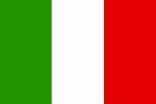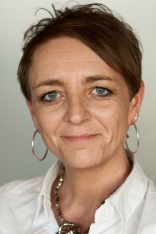Home › magazine › european reports › Rise of specialist qualifications
Rise of specialist qualifications
16th of June 2025The industry is seeing an increase in more specialist aspects, reports Anna Garbagna from Italy.
The Pandemic has caused a widespread diffusion of sanitisation systems for domestic and working environments, as well as creating the need to establish benchmarks to assess the effectiveness and safety of indoor sanitisation methods.
This situation has led to a search for increasingly specific professions that must be identified and trained. Hence the need to find a professional body with the ability to manage and select
the systems.
It is with this objective in mind that the first edition of the Advanced Training Course for Sanitation Process Managers, organised by the Campus Biomedico University in Rome, in collaboration with the Istituto Superiore di Sanità, has begun.
Improve skills
The educational direction has been entrusted to Professor Laura De Gara, who is also pro-rector for education and deputy vice-chancellor of the Master’s Degree course in Food Science and Human Nutrition, and to Dr Rosa Draisci, former director of the National Centre for Chemical Substances, Cosmetic Products and Consumer Protection of the Istituto Superiore di Sanità. Dr. Lucrezia Lanciotti, researcher at the Istituto Superiore di Sanità, was appointed as education manager.
The course is intended as an opportunity to increase the skills of industry professionals, in line with the UNI/PdR 173-2:2025 Reference Practice on the Sanitisation of Indoor Environments, with the addition, in the second part of the course, of the specification of the requirements for the qualification of sanitisation manager and sanitisation operator, in order to obtain a qualification officially recognised by Accredia.
Methods, techniques and tools for an effective and strategic management of sanitisation in commercial, working and civil environments: this is the objective of the course that officially kicked off in March.
Advanced tech
Thanks to these sessions, participants can acquire in-depth knowledge of the industry’s most advanced technologies, reference regulations and best practices for planning and managing activities, with particular attention to staff selection, implementation of company procedures and interfacing with risk management and the company’s protection and prevention service (RSPP).
The course normally takes place in a mixed format with two face-to-face meetings (the initial and final day) and a three-month duration, during which five thematic areas are addressed. Specifically: planning and initiation of sanitisation; operational management of sanitisation; quality, processes and document management; monitoring, control and service improvement; development of human resources in the sanitisation sector.
The course is designed for those who already hold an upper secondary school diploma or a three-year degree and have at least one year’s work experience.
Those who hold at least a three-year degree and complete the course will be awarded a specialist qualification of ‘Sanitisation Process Manager’ with training credit linked to both regular attendance (compulsory for a total of no less than 80 per cent of the lectures in attendance and live streaming) and passing the final test.







